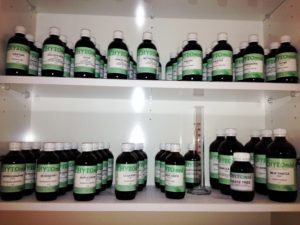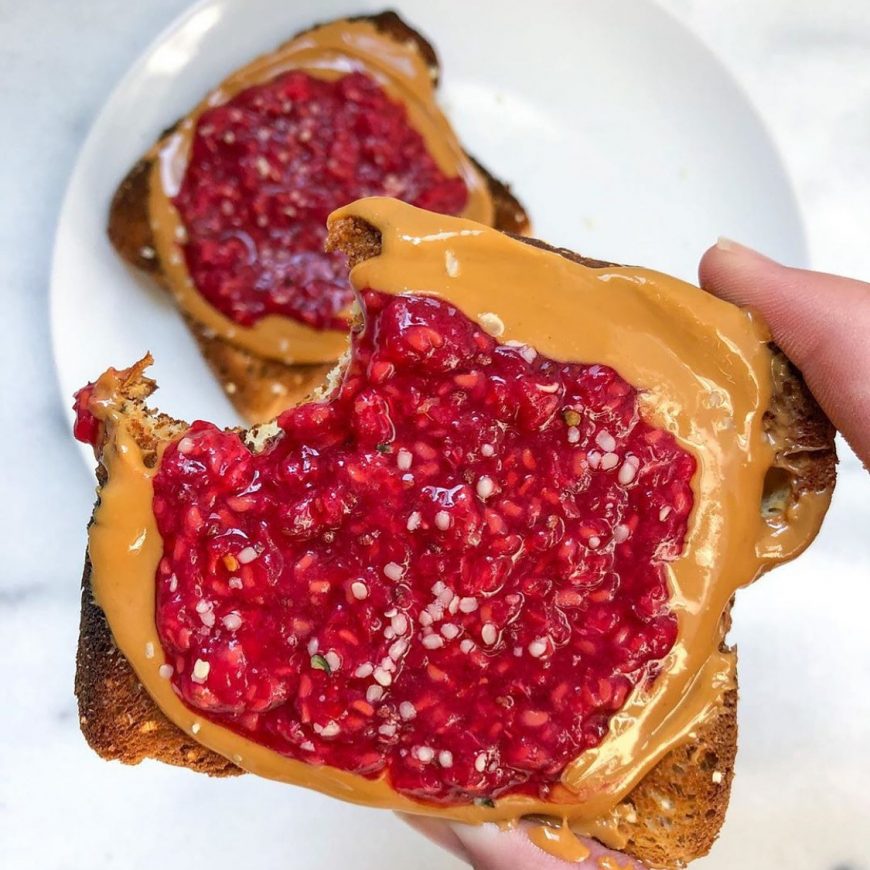- B complex vitamins
- Vitamin B1, B2, B3, B5, B6 and B7 are all essential for energy production in the body.
- Water soluble like vitamin C (as opposed to fat soluble like vitamins A, D, E and K) are not stored in the body. They are depleted rapidly, especially by stress, and must be replenished daily.
- Found in a wide range of foods like vegetables, grains, legumes, dairy, eggs and meat. However, they are difficult to obtain due to heat destruction during cooking. To avoid this, include raw, sprouted grains/legumes, plus raw vegetables, dairy and eggs in your diet for enhanced absorption.

- Iron and vitamins B12 and B9
- Deficiency in any one or in combination, results in anaemia. Symptoms of anaemia include fatigue, breathlessness, heart palpitations, pale complexion, hair loss and spoon-shaped nails.
- Fat soluble, meaning that they are stored in the body. Iron-deficiency anaemia appears after about three months of inadequate intake because red blood cells have a lifespan of three months. B12-deficiency anaemia may take over five years to appear as the liver stores it for on average five years.
- Iron is found in meat (especially red and organs), eggs, legumes, green leafy vegetables, dried fruit, beetroot and spirulina. Haem iron is found in animal products which is easily absorbed, whereas, non-haem iron is found in plants which is more difficult to absorb. Iron is a common deficiency in long-term vegetarian diets. Supplementation may be inevitable, particularly for females of menstruating age due to monthly blood loss. Vitamin B12 is found in animal foods like meat, eggs and dairy. It is the most common deficiency in long-term vegan diets. Only trace amounts of B12 are present in algae (e.g. spirulina and chlorella) and fermented foods, which is not sufficient as a primary source. Vitamin B9 (folate/folic acid) is rich in green vegetables, which is another reason to eat more greens!
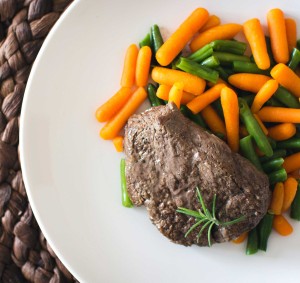
- Hydrate
- Dehydration increases blood viscosity and compromises blood flow to organs for energy, especially the brain.
- Add natural flavouring to your water such as berries, citrus fruits and cucumber. You will drink more if it tastes better!
- If you need a reminder to drink more water, drink one glass of water on the hour every hour you are awake, excluding near meals times. Avoid drinking about 30 minutes before and after meals, to ensure optimal digestion and avoid low stomach acid.
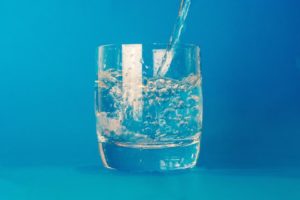
- Eat regular meals and snacks to avoid energy dips. Schedule a smart snack at the time when you feel lowest in energy e.g. mid-morning or mid-afternoon.
- Include a balance of low glycaemic index/load carbs, quality protein, healthy fats and fibre for stable energy all day. Check out my Healthy Meal and Snack ideas.
- Count nutrients (vitamins and minerals) not calories. Nutrients found in natural, whole and unprocessed foods provide slow release energy. Processed foods spike our energy quickly but leave us feeling more lethargic than before.

- Healthy pick-me-ups
-
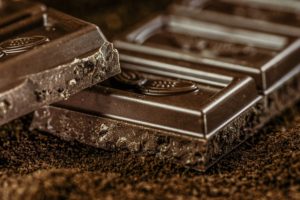 Cacao naturally contains a stimulant called theobromine. It stimulates the heart and it is a vasodilator, meaning it dilates blood vessels allowing more blood flow to organs for energy. The darker the chocolate, the more stimulating it is. Cacao is best avoided after dinner time, as it may disrupt sleep.
Cacao naturally contains a stimulant called theobromine. It stimulates the heart and it is a vasodilator, meaning it dilates blood vessels allowing more blood flow to organs for energy. The darker the chocolate, the more stimulating it is. Cacao is best avoided after dinner time, as it may disrupt sleep.
-
- Green tea contains a small amount of caffeine. It also has theanine which buffers some of its stimulating effects, therefore, it is less stimulating than coffee. Green tea should only be enjoyed until mid-afternoon to ensure restful sleep.
- Coconut oil is a unique fat containing medium-chain fatty acids (as opposed to long-chain found in other foods), which are converted directly into energy upon consumption and not stored as fat in the body.
Diaphragmatic breathing
- Deep breathing enhances oxygen absorption. Oxygen is paramount for energy alongside glucose. Remember the respiration equation from high school chemistry? Glucose + oxygen = energy + water + carbon dioxide.
- If you need a reminder to breathe diaphragmatically, put your hands on your belly on the hour every hour, breathe slowly and deeply for ten breaths with your eyes closed. This will reduce stress, increase brain function and lift your energy levels.
- Breathing exercises have a powerful impact on the body. They are taught at many yoga and meditation classes.

- Movement
- Enhances blood flow to muscles and organs, which increases energy.
- Raises metabolic rate, therefore, energy production.
- Stimulates endorphins, promoting a positive outlook on life and improved perception of energy levels. Individuals with a negative outlook or depressive thoughts perceive their energy levels as low. Energy levels are subjective (personal opinion as opposed to objective which is measurable). Perception may differ from reality.
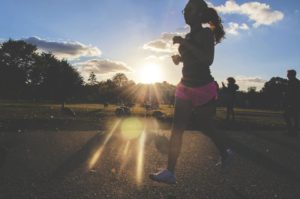
- Our intelligent bodies conserve oxygen overnight as we inhale more than we exhale. Oxygen conservation overnight is a determining factor of energy the following day.
- Yawning indicates a lack of oxygen, which usually occurs during sleep deficiency (therefore, oxygen deficiency).
- Sleep is a time of conserving energy. Our resting metabolic rate reduces by up to 10% due to lack of activity, our calorie demands and temperature also reduce.

- Herbal medicine… an introduction to the Ginsengs
-
- Withania/Ashwagandha (also called Indian Ginseng) is a traditional Indian herb that increases haemoglobin and red blood cells, stamina and improves resistance to stress. Consult with a Naturopath/Herbalist for a prescribed dose and to determine if this herb is appropriate in your situation.
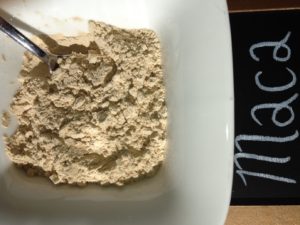 Maca (also called Peruvian Ginseng) grows in the mountains of Peru. It is used for increasing energy, stamina and performance. Unlike the other Ginsengs, Maca is milder and available from health stores without a prescription in powder or capsule form. Start with half a teaspoon, building up to 1 tablespoon per day. Simply add to water or a smoothie, as it is very palatable compared to other herbal medicines.
Maca (also called Peruvian Ginseng) grows in the mountains of Peru. It is used for increasing energy, stamina and performance. Unlike the other Ginsengs, Maca is milder and available from health stores without a prescription in powder or capsule form. Start with half a teaspoon, building up to 1 tablespoon per day. Simply add to water or a smoothie, as it is very palatable compared to other herbal medicines.- Check out my Energiser Bunny Tonic.
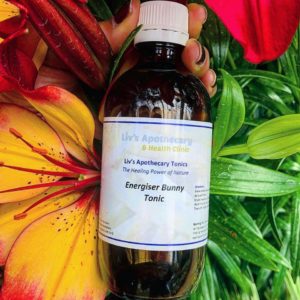
Low energy is very individual and multifactorial, which may be a symptom of many serious health conditions. Mild and short-term tiredness is inevitable for all of us occasionally depending on our work/study demands, and the quality of our diet and sleep. However, severe or long-term tiredness requires investigation from a qualified health practitioner. They are able to request testing to rule out health conditions. I strive to determine the cause and prescribe a tailored treatment plan to your personal case. I believe that everyone is unique and deserves an individualised approach to their health and wellbeing.
